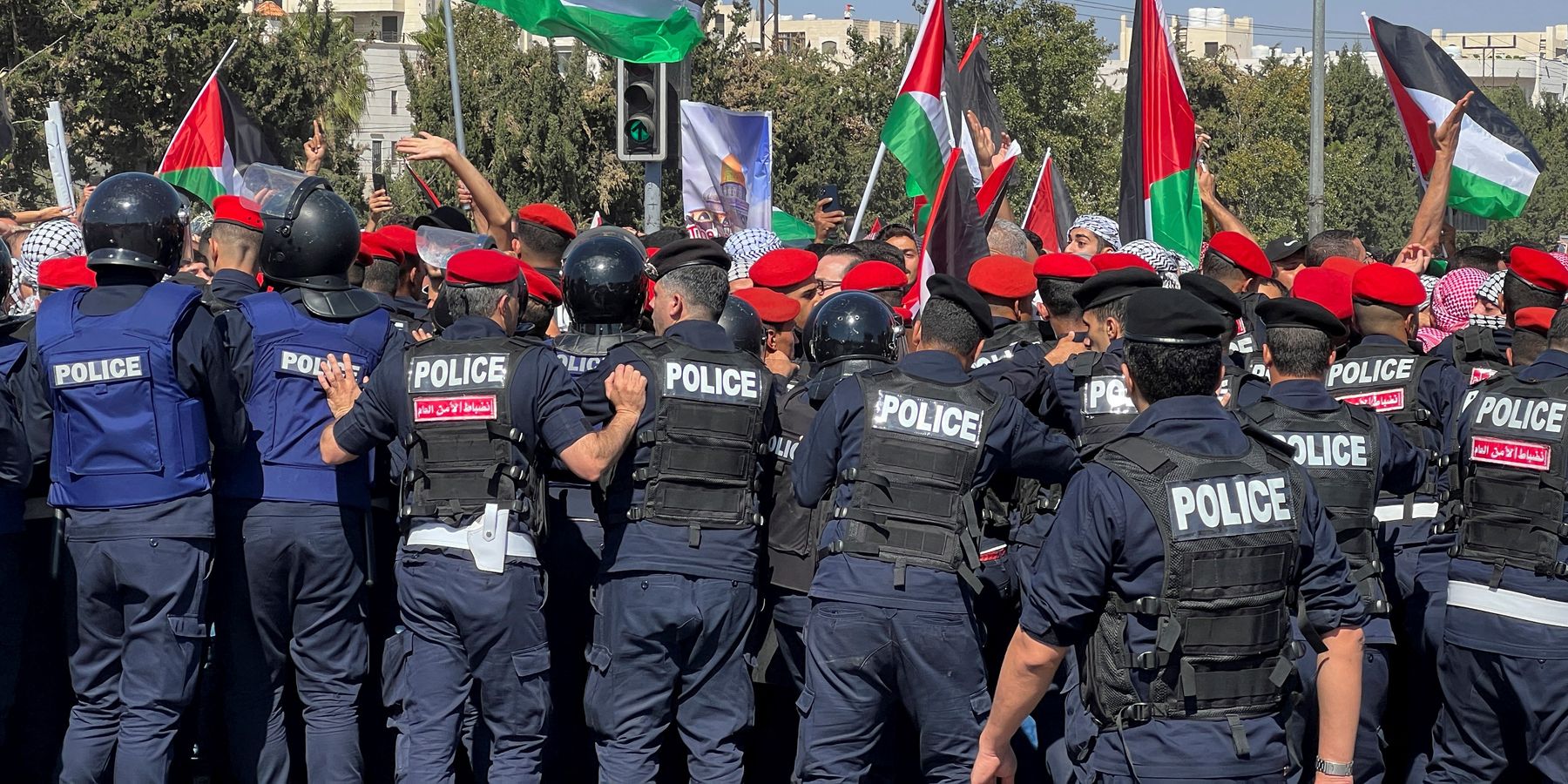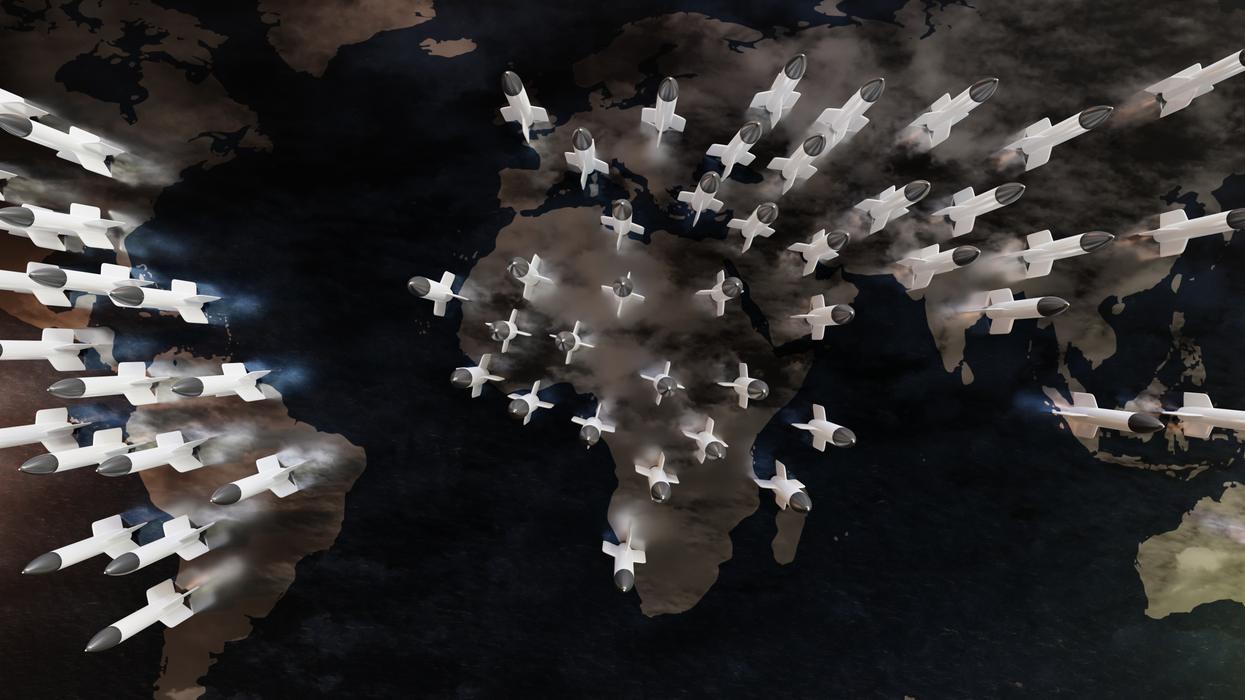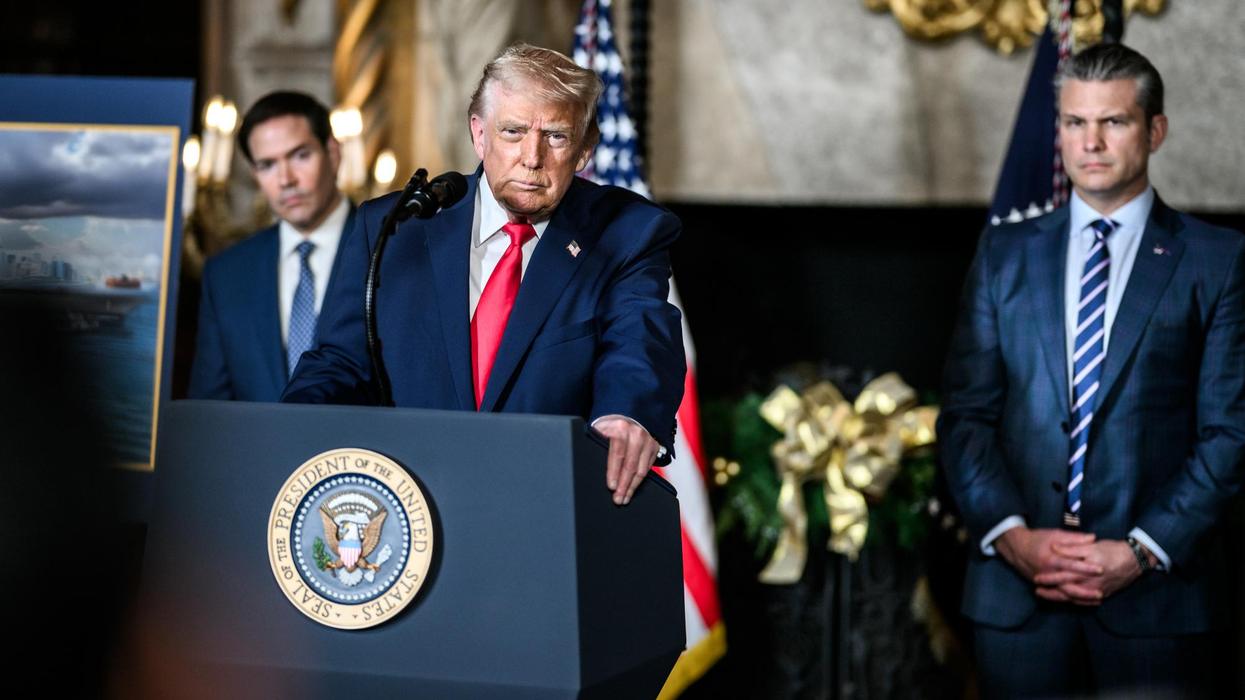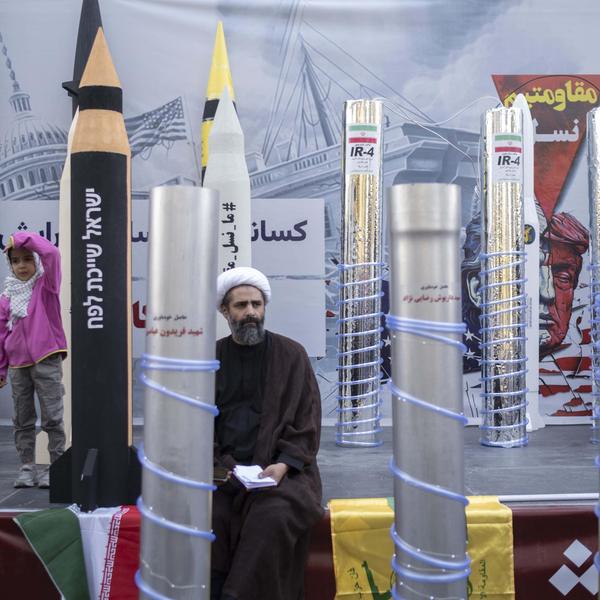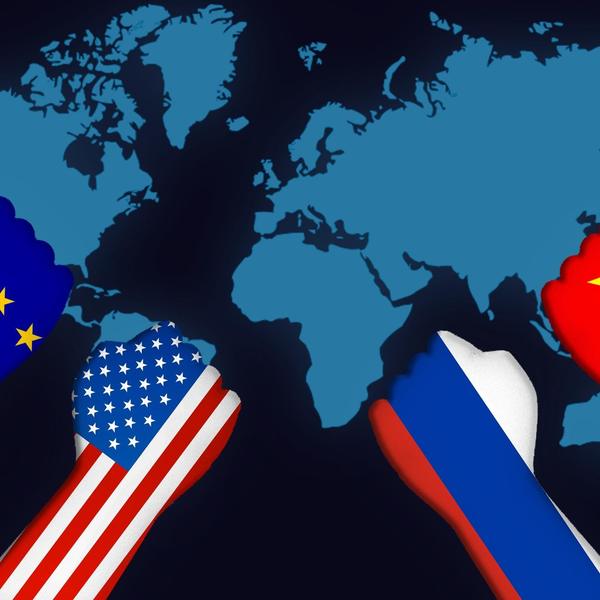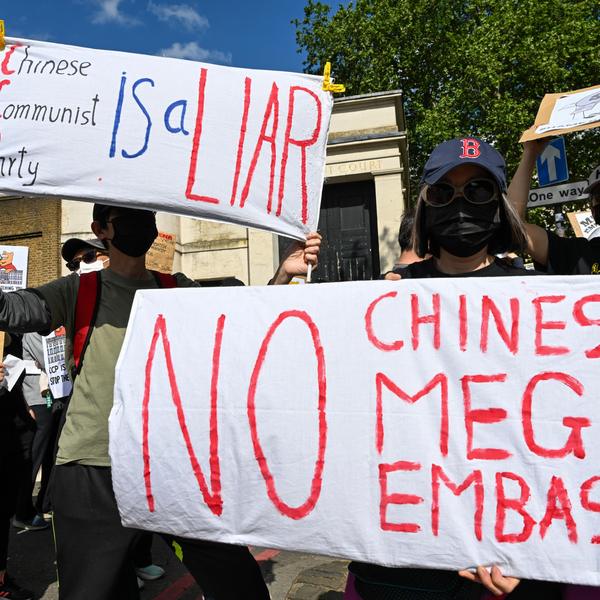Following Donald Trump’s election victory, Israeli Finance Minister Bezalel Smotrich told his staff to prepare to annex the West Bank.
Smotrich stated that he hoped to work with the Trump White House on achieving this key goal of the Israeli far-right, which would extinguish the possibility of a Palestinian state. Smotrich’s optimism that the Trump administration would support annexation appears justified by Trump’s appointments, such as his selection of passionate Christian Zionist Mike Huckabee as U.S. Ambassador to Israel.
Meanwhile, Senator Tom Cotton (R-AR) introduced legislation that would require the U.S. government to refer to the West Bank as “Judea and Samaria,” the moniker favored by the Israeli government — building on similar legislation introduced by Rep. Claudia Tenney in the House earlier this year — in a move apparently intended to signal support for Israel’s illegal claim to the territory.
Yet this embrace of a project dear to Israel’s rightwing extremists is not limited to Republicans. During a speech in Dearborn, Michigan on behalf of the Harris campaign, former president Bill Clinton also referred to the West Bank as "Judea and Samaria,” parroting talking points favored by Christian and Jewish far-right Zionists.
Clinton’s speech, in which he also asserted that Israel’s attacks on civilians in Gaza were justified, has been widely criticized as actually harming the campaign’s outreach to voters in the country’s largest Arab majority city. Clinton’s statement directly contradicts the official U.S. position — which maintains a nominal commitment to a two-state solution — as well as international law, which holds that a state cannot annex or transfer its population to territory that it has occupied illegally, as the ICJ made clear in its ruling on Israel’s illegal presence in the Occupied Palestinian Territories in July.
The fact that even Bill Clinton — who helped broker the 1993 Oslo Accords that were supposed to lead to an independent state of Palestine — has embraced the language of the Israeli rightwing signals that much of the U.S. foreign policy establishment appears ready to support Israel’s annexation of the West Bank, regardless of the chaos that would ensue and how this would undermine U.S. interests in the region.
The country that would be most directly impacted by Israel annexing the West Bank is Jordan. A major non-NATO U.S. ally, Jordan was long seen by Washington as playing a central role in the Israel-Palestine conflict and in regional security, following the peace treaty that Jordan signed with Israel in 1994.
During the U.S. occupation of Iraq and the War on Terror, Jordan remained a key American partner, both working with the U.S. military and hosting hundreds of thousands of Iraqi refugees. Following the Arab Spring, the subsequent Syrian Civil War, and then the rise of ISIS, Jordan absorbed more people fleeing violence; the kingdom continues to host approximately 1.3 million refugees.
Jordan’s struggles to accommodate civilians displaced by multiple regional conflicts in the 21st century pale in comparison to the 750,000 Palestinian refugees who fled the violence that accompanied the creation of the state of Israel in 1948, which tripled Jordan’s population at the time. Half of Jordan’s current population is estimated to be originally from Palestine.
With both Israeli and American politicians increasingly signaling their intention for Israel to annex the West Bank, Jordanian officials have stated explicitly that this would be an existential threat. Foreign Minister Ayman Safadi said in September that any Israeli attempts to displace West Bank Palestinians into Jordan would be interpreted as “a declaration of war.” During his speech at the UN General Assembly in September, Jordan’s King Abdullah made clear that Jordan rejects annexation, saying, “We will never accept the forced displacement of Palestinians, which is a war crime.”
During my recent trip to Jordan, I interviewed former ministers, UN and government officials, leaders of Islamist parties, as well as journalists and other experts for a report, published today, on how the war in Gaza has impacted Jordan. Many of the people I interviewed brought up their fear that Israel would annex the West Bank. There are three million Palestinians in the West Bank; if Israel annexed the territory, a significant portion, if not the entirety of that population, would either flee to Jordan or else Israel would try to force them over the border.
That amounts to more than a quarter of Jordan’s current population; if this were to happen to the United States, it would be the equivalent of more than 80 million refugees coming across the border. Jordan already faces significant challenges: it lacks sufficient water for its existing population; 22 percent of Jordanians are unemployed, a number that rises to 46 percent among young people; Jordan’s debt stands at 90 percent of its GDP.
Since October 7 and Israel’s war in Gaza, pressures have only risen. Jordanians demand that their government do more to support Palestinians, but King Abdullah can do little beyond providing aid and hosting many of the humanitarian organizations desperately trying to get aid into Gaza, most of which Israel blocks.
Jordanians demonstrated their frustration by voting for Islamists in the parliamentary elections in September: the Islamic Action Front, which is affiliated with the Jordanian branch of the Muslim Brotherhood and is the country’s largest political party, won a plurality of 31 out of 138 seats. The IAF campaigned on ending Jordan’s peace treaty with Israel, which has long been unpopular; however, even with additional seats in the legislature, such decisions remain under the purview of the king.
A few Jordanians have taken matters into their own hands: in September, a Jordanian truck driver killed three Israelis near the border crossing between Jordan and the West Bank. In October, two Jordanians crossed the border south of the Dead Sea and opened fire on Israeli soldiers, wounding several before they were killed. In November, a gunman fired on police near the Israeli embassy in Amman, injuring three before he was killed.
Yet these sporadic acts of violence are nothing compared to the chaos that would result from annexation of the West Bank. Faced with Israel’s violation of the 1994 peace treaty, King Abdullah might respond aggressively, which could prompt further escalation from the Israeli military and possibly spark a war. It is far more likely that Abdullah would beg the U.S. for help in handling the massive wave of new refugees and the subsequent popular uproar.
Yet under the first Trump administration, Trump appeared happy to ignore Amman in favor of Tel Aviv, Abu Dhabi, and Riyadh. If Jordan were faced with a true crisis with no support from the U.S., the Hashemite monarchy could fall. With ongoing conflict in Lebanon, the war in Gaza, and the recent overthrow of Bashar al-Assad in Syria, Jordan remains the one country in the Levant not yet riven by violence.
Trump campaigned on restoring order, yet allowing Israel to annex the West Bank would do the opposite. If Trump wishes to achieve his campaign promise, or hopes to accomplish what Biden could not and convince Saudi Arabia to normalize relations with Israel, he must rein in Netanyahu and his government before they annex the West Bank and further destabilize the region.
- Will Jordan end the peace treaty after Israel annexes the West Bank? ›
- How Israel’s Likud Party played the long game toward annexation of the West Bank ›
- Gaza in the rearview, Israelis turn tanks and guns onto West Bank | Responsible Statecraft ›
- Trump can't 'clean out' Gaza without destabilizing entire region | Responsible Statecraft ›
- Israeli official: ‘Goal’ is to ‘demolish more than the Palestinians build’ | Responsible Statecraft ›
- Rep. Mast forces staff to call West Bank 'Judea & Samaria' | Responsible Statecraft ›
- Was Jordan's Muslim Brotherhood ban a bid to please Israel, Saudi? | Responsible Statecraft ›
- Even Mike Huckabee is fed up with Israel | Responsible Statecraft ›

